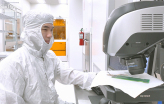Fighting AI Fire with ML Firepower
Computer scientists from the University of California San Diego Jacobs School of Engineering have proposed a novel solution to optimize the tremendous potential of deep generative models while mitigating the production of content that is biased or toxic in nature.

















